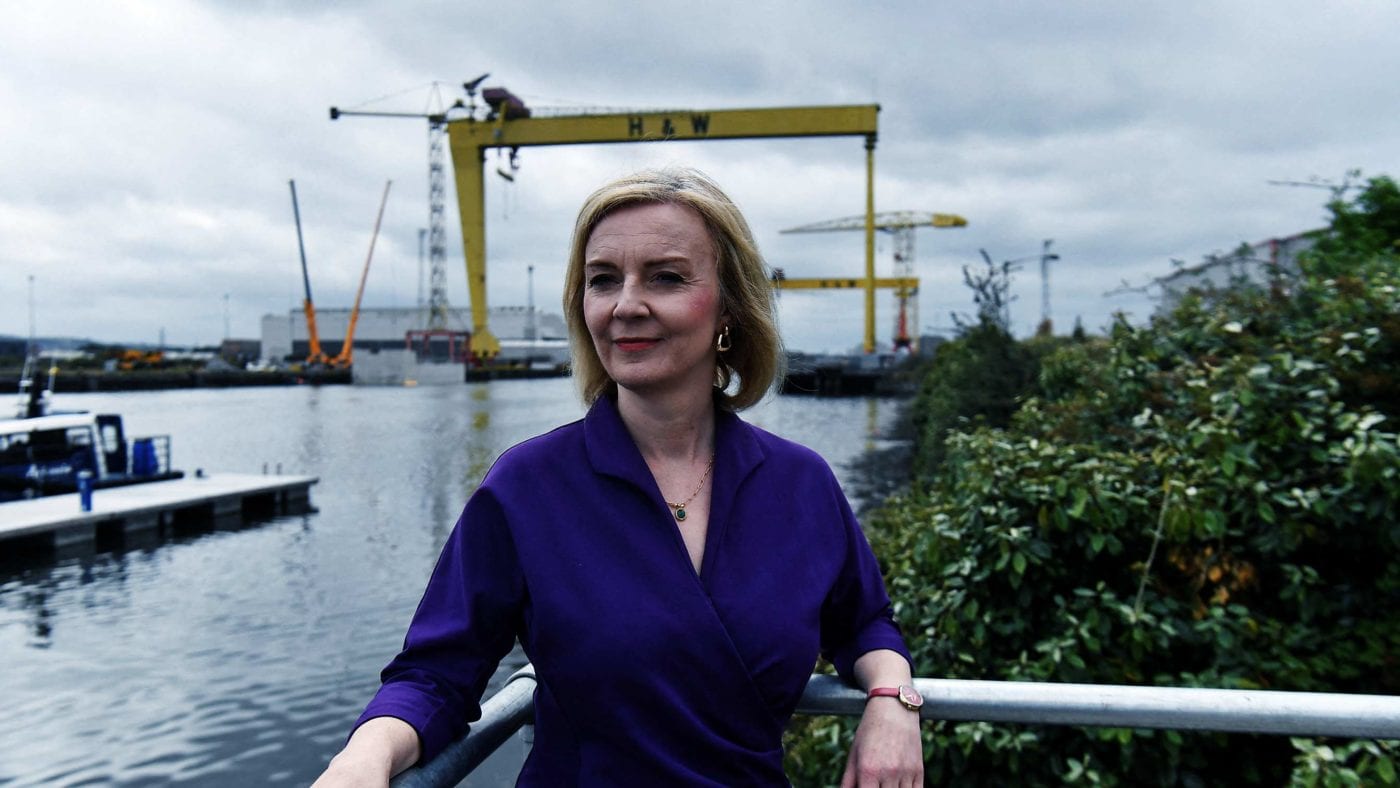There can’t be many political commentators left who have not pointed out the severity of the problems facing the new prime minister, Liz Truss.
We’ve heard her say she will prioritise the energy crisis, tax cuts and the NHS, but there are equally pressing and inter-related issues involving inflation, the war in Ukraine, workers’ strikes and economic stagnation. Even taking into account this incredible to-do list, it is disappointing that she did not find room to mention the integrity of the United Kingdom in her victory speech or her introductory remarks in front of Number 10.
She must know that the UK will be subjected to reinvigorated assaults by separatists in the devolved regions, as the various crises bite. She must also know that the Northern Ireland Protocol has already ‘subjugated’ important aspects of the Act of Union. It would have reassured unionists across the UK if she had covered the challenges in Scotland and Northern Ireland, even briefly, in her two opening speeches.
You can be certain that Nicola Sturgeon and the SNP will use Britain’s problems, even those that are caused by international factors and shared by every European country, to nourish grievances against London and encourage popular support for a second referendum. Meanwhile, in Ulster, Irish separatists will fight to retain all of the Protocol’s most damaging features. A ‘rigorously implemented’ sea border loosens Northern Ireland’s links to the rest of the UK and improves the prospects of an ‘all-Ireland economy’ – something which until now has been largely a nationalist fantasy.
If, as they hope, the province becomes estranged from Great Britain and its economic affairs are increasingly entangled with those of Dublin, nationalists’ demands will intensify for a poll on Northern Ireland’s potential annexation by the Republic. There is little chance that this pressure will succeed any time soon. But semi-detaching the province from the UK permanently is likely to weaken its political allegiance to Britain as time progresses, and encourage the SNP to demand special arrangements for Scotland.
Under Boris Johnson, the Government agreed to the Protocol, but for most of its existence ministers have provided a convincing economic and constitutional argument that the sea border is unacceptable and unsustainable.
Liz Truss played an important role in shaping the UK’s response, by supporting a stronger draft of the Northern Ireland Protocol Bill and bringing the legislation to the House of Commons. During the leadership election campaign, she claimed that the bill would continue its passage through Parliament, even though she was open to negotiating with the EU in the meantime.
Many unionists, particularly in Northern Ireland, are waiting expectantly to see how she goes about delivering her promises. They have reasons to be hopeful but they have grounds for anxiety too.
The appointment of a keen Brexiteer and former chair of the European Research Group of MPs, Chris Heaton-Harris, as Northern Ireland Secretary was largely welcomed by unionist parties. They believe that he shares their antipathy to the Protocol and that Eurosceptic Tories are more likely to press Ms Truss to deliver a comprehensive result on the sea border. His ERG colleague Steve Baker, a regular visitor to the province and keen supporter of Conservative associations there, provides another reassuringly pro-Union presence in the Northern Ireland Office, as minister of state.
Mr Heaton-Harris told the Commons yesterday that he wants to ‘negotiate a solution’ with the EU, but the Government will legislate if that does not happen. At her first Prime Minister’s Questions, Truss reiterated her determination to ‘fix’ the Protocol. ‘My preference is for a negotiated solution, but it does have to deliver all the things that we have set out in the Northern Ireland Protocol Bill.’
It seems, though, that the new Prime Minister will not trigger Article 16 immediately, as a way of preventing new disruption to trade between Great Britain and Ulster. The EU is currently taking a legal case against the UK that seeks, among other things, to end the ‘grace periods’ that allow food and parcels to flow into the province relatively unimpeded.
It’s worth mentioning that it was the Financial Times, the paper suggested originally that Article 16 would be triggered – and which has often seemed like an unofficial cheerleader for Brussels throughout its negotiations on Northern Ireland – now reports that Truss has ‘decided to pull back from an early confrontation with the EU’. It also implied that Joe Biden warned the new Prime Minister on a phone-call not to ‘rip up the Protocol’.
This may be a loaded account, but their past experiences mean that Northern Irish unionists will still be wary.
The news that Truss plans to make an early visit to Dublin, for example, could mean that she intends to persuade Irish premier Micheal Martin to become an advocate for compromise within the EU. On the other hand, a meeting with Leo Varadkar presaged Boris Johnson’s agreement to the Protocol.
Through its intermediaries, Brussels threatened last week not to negotiate with Truss at all, unless she allowed her bill to be effectively stalled in the House of Lords. If she accepts that ultimatum, it means more uncertainty and delays for Northern Ireland, while the chances of any proper resolution to the Protocol’s economic and political issues remain remote.
Click here to subscribe to our daily briefing – the best pieces from CapX and across the web.
CapX depends on the generosity of its readers. If you value what we do, please consider making a donation.


